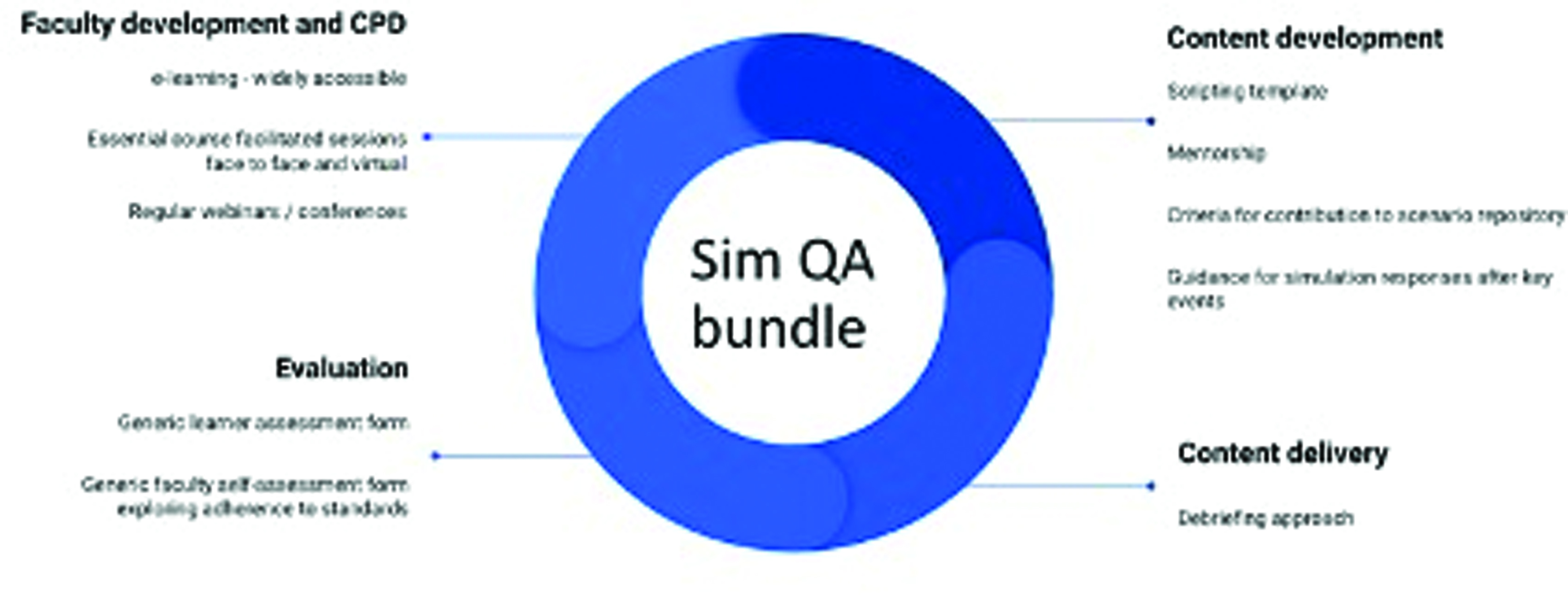
The All Wales Simulation-Based Education and Training Strategy 2022 – 2027 specifies as one of its aims to promote quality assured simulation-based education and training across healthcare in Wales underpinned by standards and evaluated to ensure best practice in safe learning environments [1].
The Simulation Team at Health Education and Improvement Wales (HEIW) has been working closely with the simulation community in Wales to identify their needs through iterative consultation during meetings, focussed discussions and webinars.
In 2021 stakeholders agreed that HEIW would promote the application of the Association for Simulated Practice in Healthcare (ASPiH) standards [2] and professional regulatory and statutory body standards relevant to SBET. Since then, a number of quality assurance tools as well as faculty development opportunities have been developed in order to embed these standards into simulation faculty development programmes and cascade their routine inclusion into everyday SBET practice.
Quality assurance (QA) resources developed by the Simulation Team at HEIW between August 2021 and February 2023 were packaged as the ‘Sim QA Bundle’ (Figure 1-A75) and presented to the simulation community in Wales in March 2023.


The ‘Sim QA Bundle’ consists of four components: 1.
Faculty development and continuous professional development (CPD): available resources include free access to the Essential Faculty Development Course, regular webinars, workshops and conferences.
2.Content development: guidance provided includes a standardized scenario scripting template, with links to relevant literature.
3.Content delivery: a standardized approach to debriefing has been developed which is supported by education opportunities and cognitive aids.
4.Evaluation tools: generic evaluation forms have been designed to assess the learners’ experience, faculty perspectives and adherence to standards.
The Simulation Quality Assurance Bundle provides a wide range of resources available to simulation practitioners in order to promote and support the delivery of high-quality simulation-based education and training across the healthcare workforce in Wales.
Authors confirm that all relevant ethical standards for research conduct and dissemination have been met. The submitting author confirms that relevant ethical approval was granted, if applicable.
1. All Wales Simulation-based education and training strategy [Internet]. HEIW. [cited 2023Apr28]. Available from: https://heiw.nhs.wales/workforce/all-wales-simulation-based-education-and-training-strategy/
2. Purva M, Nicklin J., A Bohnert C, L Lewis K, T Dreifuerst K, Teresa Gore, et al. ASPiH Standards for Simulation-Based Education [Internet]. ASPiH. [cited 2023Apr28]. Available from: https://aspih.org.uk/standards-framework-for-sbe/